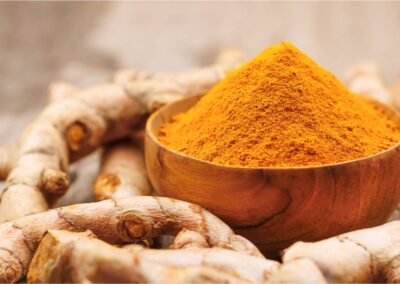Chemotherapy is a form of cancer treatment involving drugs that destroy the genetic material of rapidly dividing cancer cells. It inhibits cell division, interferes with the growth of new cells, and produces free radicals toxic to cancer cells, thereby reducing their population.
Current Chemotherapy Applications:
- As the primary treatment for advanced-stage cancers when no other options are viable
- As adjuvant therapy following localized treatments such as surgery or radiation to prevent recurrence
- As neoadjuvant therapy given before surgery or radiation to shrink tumors and minimize risk to vital organs
- As localized therapy directly into affected areas (e.g., intrathecal for the spine, intrapleural for the lungs)

Chemoresistance remains a significant challenge, leading to treatment failure in approximately 90% of metastatic cancer cases. Cancer cells develop multiple mechanisms to resist chemotherapy:
- Reduced drug uptake or increased drug efflux
- DNA repair capabilities
- Inhibition of cell death
- Phenotypic transformation aiding metastasis
- Target protein alteration and drug degradation
- Gene expression control
- Cancer stem cells (CSCs) that evade chemotherapy and cause relapse
- Tumor microenvironment (TME) support with cytokines and growth factors that promote drug resistance
These resistance mechanisms reduce drug efficacy, necessitating higher doses or multi-drug regimens, which can increase toxicity to normal cells.
Integrative Approaches to Enhance Chemotherapy
Research over the past 20+ years has identified various chemosensitizers—agents that enhance cancer cell sensitivity to chemotherapy, inhibit resistance pathways, and improve therapeutic outcomes.
- Targeted Therapy
- Specifically inhibits molecular pathways in cancer cells
- Enhances chemotherapy effectiveness when genetic mutations are present
- Used selectively due to high cost and mutation-specific action
- Phytochemicals
- Natural plant compounds, especially flavonoids, that modulate multiple cancer pathways
- Proven in lab, animal, and clinical studies to improve outcomes in breast, prostate, pancreatic, gastrointestinal, colorectal, ovarian, and lung cancers
- Function both as chemosensitizers and chemoprotectors

Key phytochemicals:
- Curcumin (turmeric)
- Berberine (goldenseal)
- Resveratrol (grape skin)
- Genistein (soy)
- EGCG (green tea)
- Silymarin (milk thistle)
- Quercetin (onion)
- Indole-3-carbinol/DIM (broccoli)
- Drug Repurposing
- Using existing drugs (e.g., for diabetes, cholesterol, inflammation) with known safety profiles as adjuvants in cancer therapy
- Examples: Metformin, Mebendazole, Enoxaparin, Celecoxib, Simvastatin, Disulfiram
- Clinical studies show improved chemosensitivity in lung, breast, prostate, brain, and pancreatic cancers

- Local Hyperthermia
- Heat application (39–45°C) directly to tumors
- Increases blood flow, drug delivery, and immune response
- Hyperbaric Oxygen Therapy (HBOT) & Ozone Therapy
- Addresses tumor hypoxia, a key factor in chemoresistance
- Increases oxygen concentration in tumors, enhancing chemotherapy efficacy
- Ozone also stimulates immune function and produces ROS toxic to cancer cells
- High-Dose Intravenous Vitamin C (IVC)
- Induces cancer cell apoptosis, impairs energy production, and inhibits metastasis
- Shown in preclinical and clinical studies to enhance chemotherapy in multiple cancers including renal, pancreatic, ovarian, colorectal, breast, leukemia, and lymphoma
- Reduces chemotherapy-related side effects

Holistic and Personalized Cancer Care
Beyond enhancing drug efficacy, integrative oncology supports patients through individualized, holistic care:
- Nutritional therapy
- Detoxification (liver, gut)
- Inflammation control
- Hormonal and metabolic balance
- Immune enhancement
- Bone and tissue support
The ultimate goal is to not only increase survival but also improve quality of life and reduce recurrence through comprehensive, root-cause-focused interventions.
- Hengdong Jiang, Ke Chen, Liang Cheng, et al. Ann. N.Y. Acad. Sci. 1403 (2017) 59–69 C. Resveratrol and cancer treatment: updates
- James A. McCubrey, Kvin Lertpiriyapong, et al. Aging 2017. Vol 9. No. 6 Effects of resveratrol, curcumin, berberine and other nutraceuticals on aging, cancer development, cancer stem cells and microRNAs
- Aseel Ali Hasan, Elena Kalinina, et al. Int. J. Mol. Sci. 2023, 24, 10960. https://doi.org/10.3390/ijms241310960. Potentiation of Cisplatin Cytotoxicity in Resistant Ovarian Cancer SKOV3/Cisplatin Cells by Quercetin Pre-Treatment
- Balachandran s Vinod, T.T. Maliekal, R.J.Anto. Antioxidant and Redox. 25 Feb,2013. Phytochemicals as chemosensitizers: from molecular mechanism to clinical significance.
- Seyed Mohammad Ali Mirazimi, Fatemeh Dasht et al. Frontiers in Pharmacology | frontiersin.org. 1 April 2022 | Volume 13 | Article 860209. Application of Quercetin in the Treatment of Gastrointestinal Cancers.
- Seung Heyun Lee, Eun Jo Lee, et al. Clin Lung Cancer. 2015 Nov;16(6):e235-43. Quercetin Enhances Chemosensitivity to Gemcitabine in Lung Cancer Cells by Inhibiting Heat Shock Protein 70 Expression
- Maleki Dana et al. Cancer Cell Int (2021) 21:349.https://doi.org/10.1186/s12935-021-02067-8. Anti-cancer properties of quercetin in osteosarcoma.
- Lin Wang, Penghui Li, Kun Feng. European Journal of Medicinal Chemistry 250 (2023) 115197. EGCG adjuvant chemotherapy: Current status and future perspectives.
- Veronica Cocetta, Vincenzo Quagliariello et al. J. Mol. Sci. 2021, 22(4), 2049; https://doi.org/10.3390/ijms22042049. Resveratrol as Chemosensitizer Agent: State of Art and Future Perspectives
- Ignatios Ioakeim-Skoufa, Natalia Tobajas-Ramos, Enrica Menditto, et al. Cancers 2023, 15(11), 2972; https://doi.org/10.3390/cancers15112972. Drug Repurposing in Oncology: A Systematic Review of Randomized Controlled Clinical Trials
- Tharcisio Citrangulo Tortelli Jr , Rodrigo Esaki Tamura, et al. AGING 2021, Vol. 13, No. 18. www.aging-us.com. Metformin-induced chemosensitization to cisplatin depends on P53 status and is inhibited by Jarid1b overexpression in non-small cell lung cancer cells
- Michele J. Mayer, Laurence H. Klotz and Vasundra Venkateswaran. ANTICANCER RESEARCH 37: 6601-6607 (2017). Evaluating Metformin as a Potential Chemosensitizing Agent when Combined with Docetaxel Chemotherapy in Castration-resistant Prostate Cancer Cells
- R.Natta, S. Gomez Ordonez, et al. Cancer Treatment Reviews. Vol41, Issue 9, November 2015, Page 745-753. Local hyperthermia combined with radiotherapy and-/or chemotherapy: Recent advances and promises for the future.
- Bernardino Clavo, Norberto Santana-Rodríguez, et al. Evidence-Based Complementary and Alternative Medicine Volume 2018, Article ID 7931849, 11 pages https://doi.org/10.1155/2018/7931849. Ozone Therapy as Adjuvant for Cancer Treatment: Is Further Research Warranted?
- Espey MG, Chen P, Chalmers B, Drisko J, Sun AY, Levine M, et al. Pharmacologic ascorbate synergizes with gemcitabine in preclinical models of pancreatic cancer. Free Radic Biol Med. 2011 Jun 1;50(11):1610–9.
- Kurbacher CM, Wagner U, Kolster B, Andreotti PE, Krebs D, Bruckner HW. Ascorbic acid (vitamin C) improves the antineoplastic activity of doxorubicin, cisplatin, and paclitaxel in human breast carcinoma cells in vitro. Cancer Lett. 1996 Jun 5;103(2):183–9.
- Frömberg A, Gutsch D, Schulze D, Vollbracht C, Weiss G, Czubayko F, et al. Ascorbate exerts anti-proliferative effects through cell cycle inhibition and sensitizes tumor cells towards cytostatic drugs. Cancer Chemother Pharmacol. 2011 May;67(5):1157–66.
- Pires AS, Marques CR, Encarnação JC, Abrantes AM, Marques IA, Laranjo M, et al. Ascorbic Acid Chemosensitizes Colorectal Cancer Cells and Synergistically Inhibits Tumor Growth. Front Physiol. 2018;9:911.
- Polireddy K, Dong R, Reed G, Yu J, Chen P, Williamson S, et al. High Dose Parenteral Ascorbate Inhibited Pancreatic Cancer Growth and Metastasis: Mechanisms and a Phase I/IIa study. Sci Rep. 2017 Dec 7;7(1):17188.
- Alexander MS, Wilkes JG, Schroeder SR, Buettner GR, Wagner BA, Du J, et al. Pharmacologic Ascorbate Reduces Radiation-Induced Normal Tissue Toxicity and Enhances Tumor Radiosensitization in Pancreatic Cancer. Cancer Res. 2018 Dec 15;78(24):6838–51.
- Böttger et al. J Exp Clin Cancer Res (2021) 40:34. https://doi.org/10.1186/s13046-021-02134-y. High-dose intravenous vitamin C, a promising multi-targeting agent in the treatment of cancer.
- Sabah Nisar a, Tariq Masoodi b, et al. Biomedicine & Pharmacotherapy 154 (2022) 113610. Natural products as chemo-radiation therapy sensitizers in cancers


